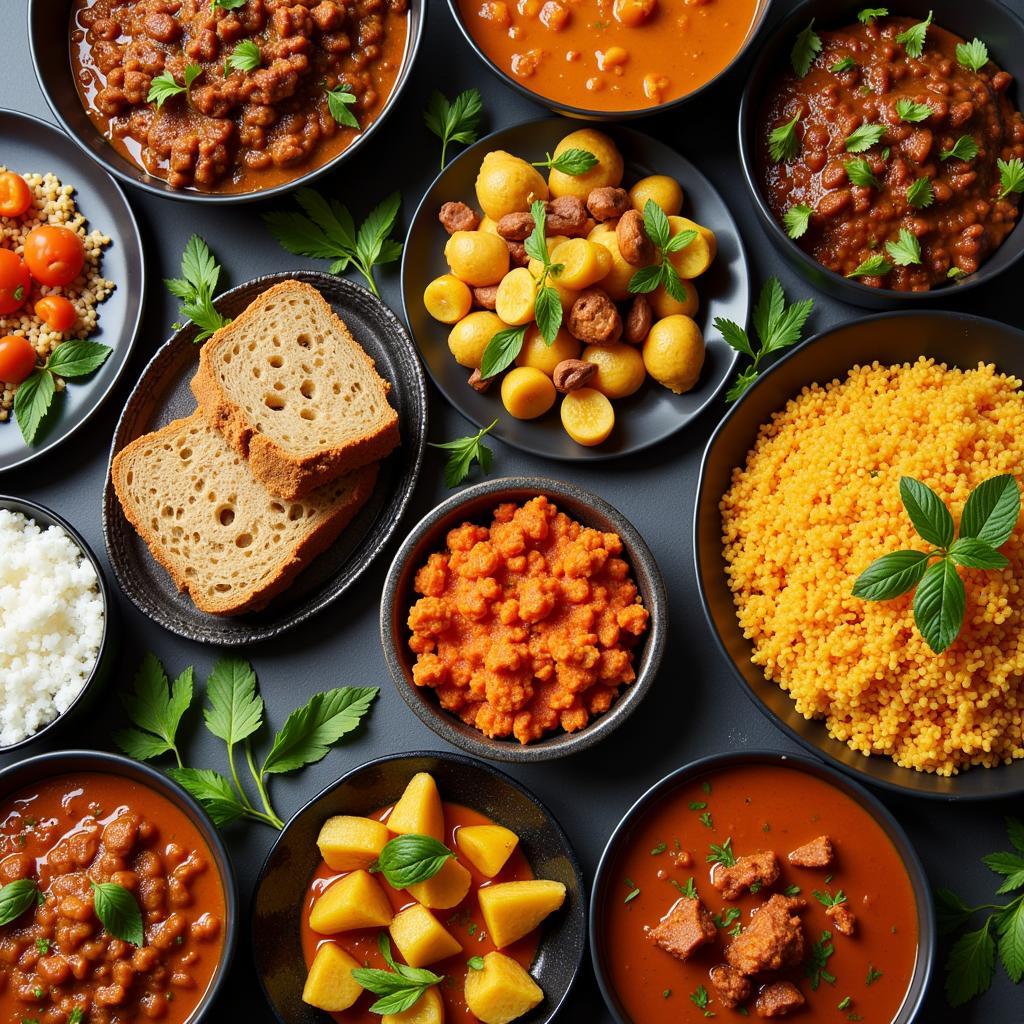Exploring the Rich Heritage of African Bronze Sculpture
African Bronze Sculpture is more than just art; it’s a tangible connection to the rich history, spiritual beliefs, and cultural heritage of diverse African communities. From ancient kingdoms to contemporary artists, these captivating works offer a glimpse into the soul of a continent. Let’s delve into the fascinating world of African bronze casting, exploring its historical significance, regional variations, and the enduring legacy it continues to shape.
The creation of bronze sculptures in Africa dates back centuries, showcasing the ingenuity and artistic prowess of various civilizations. These sculptures weren’t mere decorations; they played vital roles in religious ceremonies, political power displays, and everyday life. Learn about the fascinating world of African bronze sculpture. Early examples, like those from Ife and Benin, demonstrate the sophisticated casting techniques mastered by African artisans long before European contact. This challenges Eurocentric narratives of art history and emphasizes the independent development of advanced metalworking technologies in Africa.
The Significance of Bronze in African Art
What makes bronze such a revered material in African art? Bronze, an alloy of copper and tin, offered durability and allowed for intricate details, making it ideal for preserving cultural narratives and artistic expressions. The lost-wax casting method, a testament to African ingenuity, enabled the creation of highly detailed and complex forms, capturing the nuances of human figures, animals, and symbolic objects. The process, passed down through generations, remains a vital link to ancestral traditions. Want to learn more about the roots of African art? Check out African deep.
Regional Variations in African Bronze Sculpture
African bronze sculpture isn’t monolithic; distinct styles and themes emerged across different regions, reflecting the unique cultural identities of various communities. From the naturalistic representations of the Yoruba people of Ife to the powerful royal imagery of the Benin Kingdom, each tradition tells a unique story. The Igbo Ukwu bronzes, known for their elaborate hairstyles and detailed ornamentation, offer another perspective on the diversity of African artistic expression. Even seemingly similar subjects, such as African head sculpture, can vary significantly in style and symbolism depending on their origin.
Exploring the Benin Bronzes
The Benin Bronzes hold a particularly prominent place in the history of African art. These magnificent sculptures, looted during the British punitive expedition of 1897, offer a glimpse into the powerful Benin Kingdom and its complex history. While the repatriation of these bronzes remains a contentious issue, their artistic and historical value is undeniable. They serve as a reminder of the devastating impact of colonialism on African cultural heritage and the ongoing struggle for its reclamation. These bronzes are not just beautiful objects; they are powerful symbols of a stolen heritage. You might also be interested in exploring African animal figurines.
African Bronze Sculpture in the Modern Era
The tradition of bronze casting continues to thrive in contemporary Africa, with artists drawing inspiration from both ancient techniques and modern influences. Contemporary artists like Ben Enwonwu and El Anatsui have achieved international acclaim, pushing the boundaries of the medium and engaging with contemporary social and political issues. Their work demonstrates the enduring power of African artistic traditions to resonate with a global audience. Learn more about diverse forms of African art by exploring African art pictures and facts.
How are Modern Bronze Sculptures Made?
Modern artists often adapt traditional methods while incorporating new materials and techniques. Some artists even experiment with incorporating found objects and recycled materials into their bronze works, creating a dialogue between the past and the present. This innovative approach keeps the tradition alive while reflecting the evolving cultural landscape of modern Africa. Do you know about the spiritual significance of certain African sculptures? You might find the African Buddha Statue insightful.
Conclusion: The Enduring Legacy of African Bronze Sculpture
African bronze sculpture offers a profound journey into the artistic and cultural heritage of a continent. From ancient kingdoms to contemporary studios, the enduring legacy of bronze casting continues to inspire and captivate. These sculptures are not just objects of beauty; they are tangible connections to the past, powerful symbols of cultural identity, and testaments to the enduring creativity of African artists.
FAQ
-
What is the lost-wax casting method?
The lost-wax casting method is an ancient technique used to create intricate bronze sculptures. It involves creating a wax model, covering it with clay, and then melting the wax out, leaving a mold into which molten bronze is poured. -
Where can I see examples of African bronze sculpture?
Many museums around the world, including the British Museum and the Metropolitan Museum of Art, have collections of African bronze sculpture. -
Are African bronze sculptures still being made today?
Yes, contemporary African artists continue the tradition of bronze casting, often incorporating modern themes and techniques. -
What is the significance of the Benin Bronzes?
The Benin Bronzes are a collection of bronze plaques and sculptures that were looted from the Benin Kingdom by British forces in 1897. They are of immense historical and artistic significance. -
What are some common themes in African bronze sculpture?
Common themes include depictions of royalty, deities, ancestors, and animals, reflecting the spiritual beliefs and social structures of various African communities. -
How can I support the repatriation of African artifacts?
You can support repatriation efforts by raising awareness, signing petitions, and supporting organizations that advocate for the return of cultural heritage to its rightful owners. -
Where can I learn more about African art?
Explore online resources, visit museums, and read books about African art history and culture.
Do you have any other questions about African Bronze Sculpture? You may also find related information on African masks, textiles, and pottery within our website.
Contact us for further assistance. Call us at: +255768904061, Email: kaka.mag@gmail.com or visit our office at: Mbarali DC Mawindi, Kangaga, Tanzania. We have a 24/7 customer service team ready to assist you.
